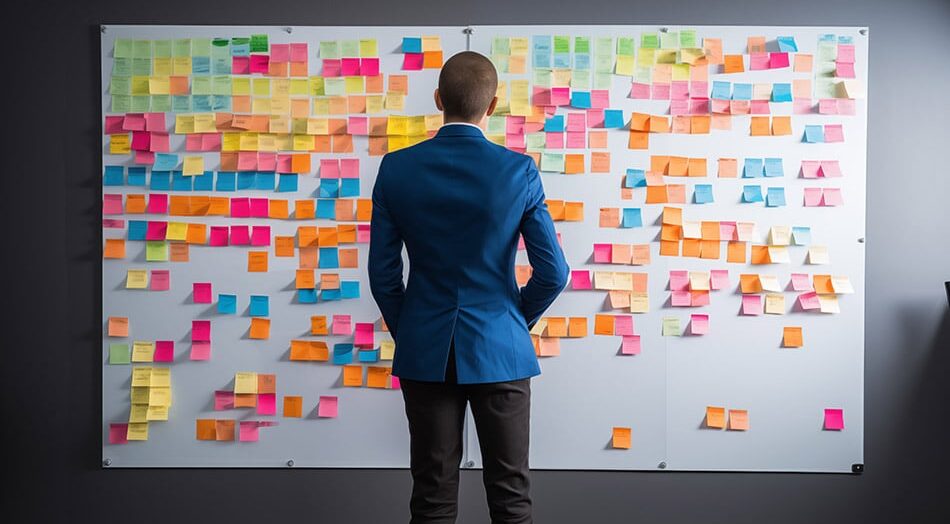5 Essential Steps to Protect Your Business Data
Protecting your business data is more important than ever, especially with the increasing number of security threats and data breaches. By following 5 essential steps to protect your business data, you can minimize the risk of data loss and keep your sensitive information secure.
These practices are important for all businesses, not just large companies. Mid-sized and small businesses face similar risks. Implementing these strategies will help you build customer trust, protect your company’s data, and reduce the chances of a data breach.
1. Implement Strong Passwords and Authentication
Strong passwords are one of the easiest and most effective ways to protect your business from cyberattacks. Weak passwords can allow hackers to access your systems and steal important data. To safeguard your business, it’s essential to use strong password policies. Passwords should include a combination of letters, numbers, and symbols, making them more difficult for hackers to crack.
Adding multi-factor authentication (MFA) further strengthens your defenses by requiring another layer of verification. Additionally, it’s important to regularly change passwords and avoid reusing the same password across different accounts. Implementing these password rules not only protects your sensitive data but also reduces the risk of data breaches.
While the process of managing and updating passwords can seem tedious, it is a simple yet highly effective way to keep your data secure from cyber threats.
2. Regularly Update Software and Systems
Software updates play a crucial role in protecting business data by fixing security vulnerabilities. Outdated software increases your exposure to security risks. Enabling automatic updates ensures you’re always running the most secure version.
Regular updates to antivirus programs protect against new threats. Therefore, it is important to keep all devices, including laptops and mobile phones, up to date. When software is not maintained, hackers have a better chance of accessing your company’s data. Regular updates help secure your systems and reduce costly downtime associated with security breaches.

3. Use Data Encryption for Sensitive Information
Data encryption is vital for protecting sensitive information by converting it into unreadable code, making it hard for unauthorized users to access. Whether you’re handling credit card numbers, email messages, or personally identifiable information, encryption is necessary. Both stored data and data being transferred should be encrypted to ensure full protection.
Sensitive information like credit card details and intellectual property must always be encrypted. Using secure communication methods, such as encrypted emails, adds another layer of security. Even if data is accessed, encryption helps keep it safe from breaches.
4. Backup Your Data Regularly
Backing up your data is one of the most critical steps in protecting your business. Regular backups protect you from data loss due to hardware failures, accidental deletions, or cyberattacks. Backups ensure you have a copy of your important data in case of a disaster.
- Automate backups to occur daily or weekly, depending on your business’s needs.
- Store backups in a secure, offsite location or use cloud-based solutions.
- Regularly test backups to ensure they work and can be restored quickly.
Data loss can be devastating to a business, especially for small businesses that might not have the resources to recover quickly. Regular backups help you recover your data and keep your business running smoothly.
5. Educate Employees on Cybersecurity
Employees are often the weakest link in cybersecurity, making education on best practices essential to protecting business data. Even a small mistake can lead to a major data breach. Regular training on identifying phishing attacks and cyber threats is crucial.
It’s important to teach employees how to secure sensitive data and ensure they follow protocols for password management, data encryption, and software updates. Cybersecurity is everyone’s responsibility, and educating employees reduces the risk of human error while strengthening your overall security strategy.
Why These Steps Are Critical for Business Security
Following these 5 essential steps to protect your business data is not just about preventing data breaches but also about building a long-term security plan. For mid-sized and small businesses, these steps are especially critical because they often lack the resources for an internal IT team dedicated to cybersecurity. Implementing these steps can help you avoid security risks and protect your company’s data from both internal and external threats.
Regular software updates and strong passwords keep your systems secure, while data encryption ensures that sensitive information remains protected. Frequent data backups prevent data loss, and educating your employees on cybersecurity reduces the risk of human error. These essential practices should be an ongoing part of your business operations to ensure long-term protection.
Protect Your Business with TechNuts
If you’re ready to protect your business from security risks, data loss, and breaches, consider working with a Managed Service Provider like TechNuts. By outsourcing your IT needs to cybersecurity experts, you can ensure that your company’s data is always secure and up to date. Contact TechNuts today to learn how we can help you implement these essential steps and keep your business data safe.






